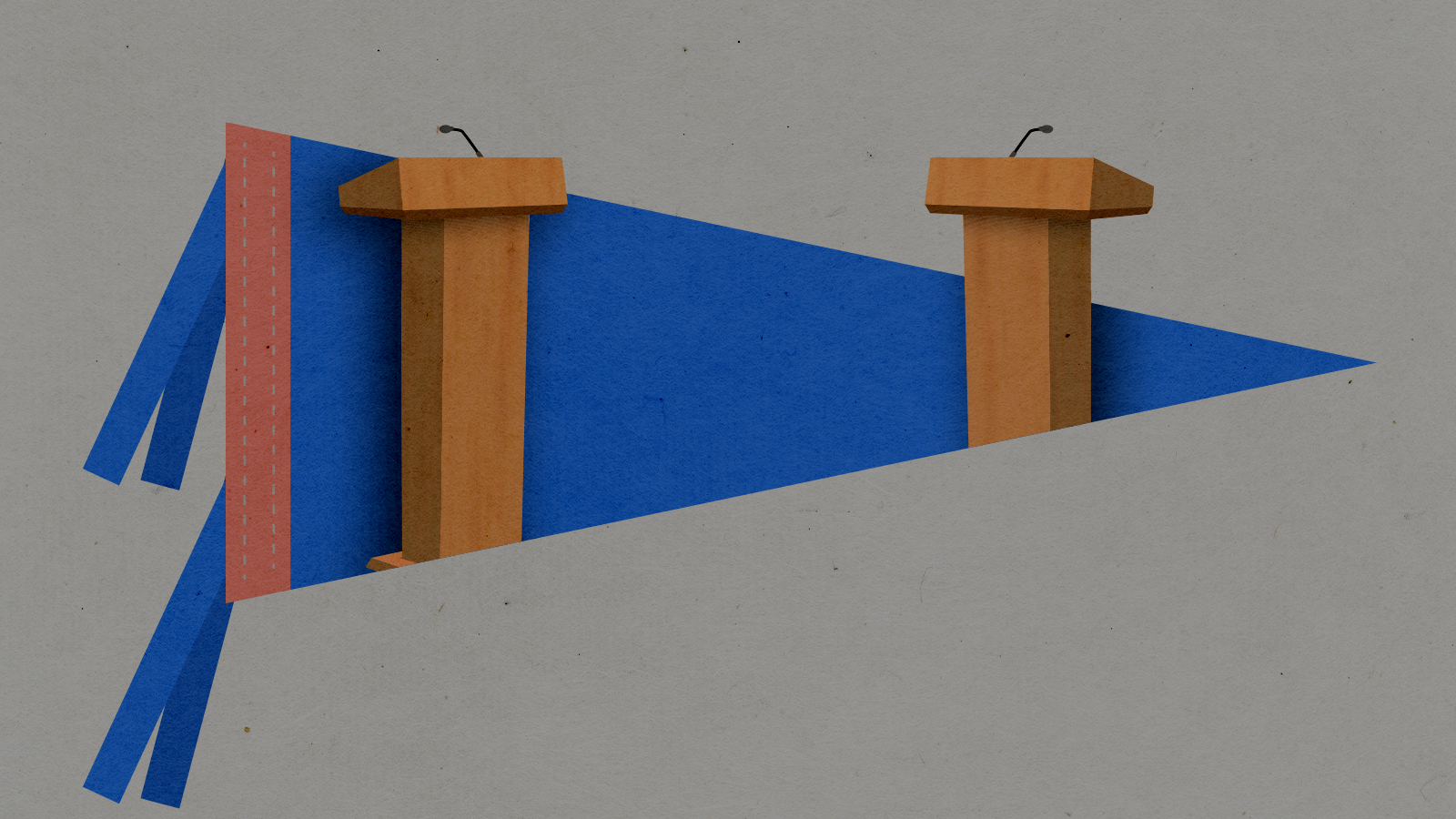In defense of debate
How the debate about debate misunderstands debate


A free daily email with the biggest news stories of the day – and the best features from TheWeek.com
You are now subscribed
Your newsletter sign-up was successful
The value of debate is up for debate. In a provocative op-ed for The New York Times, a University of Virginia undergraduate lamented the absence of political and social debate on college campuses. Searching for lively, articulate disagreement, she said she instead found stifling conformity.
Since it was published on Monday, the piece has attracted criticism from many academics, including political scientists Don Moynihan, Seth Masket, and my colleague Damon Linker. They argued that the op-ed's author and other advocates of campus debate misunderstand what a university is for. Although it takes various forms, debate supposedly aims at persuasion; academic inquiry, by contrast, aims at understanding.
The critics are right that college courses are not debate clubs, where organized teams compete in deploying rhetorical skills for or against a formal proposition. Nor are they political debate stages, in which spokespeople for a party or ideology try to persuade a broad audience. Nor are they what used to be called "bull sessions," in which students exchange views on current events — typically late at night and perhaps assisted by controlled substances. There's nothing wrong with any of those activities. But they don't belong in most classrooms.
The Week
Escape your echo chamber. Get the facts behind the news, plus analysis from multiple perspectives.

Sign up for The Week's Free Newsletters
From our morning news briefing to a weekly Good News Newsletter, get the best of The Week delivered directly to your inbox.
From our morning news briefing to a weekly Good News Newsletter, get the best of The Week delivered directly to your inbox.
The problem with the objections this week was that they revolved around pedantically limited conceptions of debate. What most people mean when they use the term isn't Biden versus Trump or even Lincoln versus Douglas. It simply refers to argumentative conversation, in which contrasting opinions are compared and assessed. As the writer Conor Friedersdorf pointed out on Twitter, Socrates thought that was an effective form of teaching. In Plato's accounts, he called the practice "dialectic" — literally, talking through.
Even under a broader definition, debate is not appropriate in every setting. Sometimes, the goal is to conjugate Italian verbs, plot supply curves, or produce an organic compound. And even when disagreement is useful for academic purposes, its goal shouldn't be to increase the speaker's status or power. Socrates derided the effort to win friends and influence people with fancy language as sophistry.
But the risk of sophistry is an insufficient reason to avoid disputation. For some students, the opportunity to participate in structured disagreement on issues they care about is part of the reason they came to college. For others, to be sure, it's annoying, embarrassing, or downright boring. Because life is unlikely to allow them to escape disagreement after college, though, that's why they need to see how it works in a controlled setting.
By raising questions about the purposes of higher education, the debate about debate resembled another recent controversy in academic circles. In a review of Roosevelt Montás book Rescuing Socrates: How the Great Books Changed My Life and Why They Matter for a New Generation, Harvard professor Louis Menand challenged the kind of courses focused on classic primary sources that Montás praises. Instead of confronting ostensibly perennial moral and political dilemmas, he argued, instruction should focus on introducing students to the methods and assumptions of disciplinary scholarship.
A free daily email with the biggest news stories of the day – and the best features from TheWeek.com
Yet very few students are going to become political scientists or professional literary critics. All have to figure out how to live in an imperfect world. Great books don't necessarily contain the answers. Like "debate," though, they can help clarify those dilemmas, identify plausible responses, and perhaps even determine which are most appealing. For the vast majority who don't go on to academic or intellectual careers, college is likely the only place they'll get the chance to listen to such conversations, even if they don't participate directly.
I'll debate anyone who thinks otherwise.
Samuel Goldman is a national correspondent at TheWeek.com. He is also an associate professor of political science at George Washington University, where he is executive director of the John L. Loeb, Jr. Institute for Religious Freedom and director of the Politics & Values Program. He received his Ph.D. from Harvard and was a postdoctoral fellow in Religion, Ethics, & Politics at Princeton University. His books include God's Country: Christian Zionism in America (University of Pennsylvania Press, 2018) and After Nationalism (University of Pennsylvania Press, 2021). In addition to academic research, Goldman's writing has appeared in The New York Times, The Wall Street Journal, and many other publications.
-
 At least 8 dead in California’s deadliest avalanche
At least 8 dead in California’s deadliest avalancheSpeed Read The avalanche near Lake Tahoe was the deadliest in modern California history and the worst in the US since 1981
-
 Political cartoons for February 19
Political cartoons for February 19Cartoons Thursday’s political cartoons include a suspicious package, a piece of the cake, and more
-
 The Gallivant: style and charm steps from Camber Sands
The Gallivant: style and charm steps from Camber SandsThe Week Recommends Nestled behind the dunes, this luxury hotel is a great place to hunker down and get cosy
